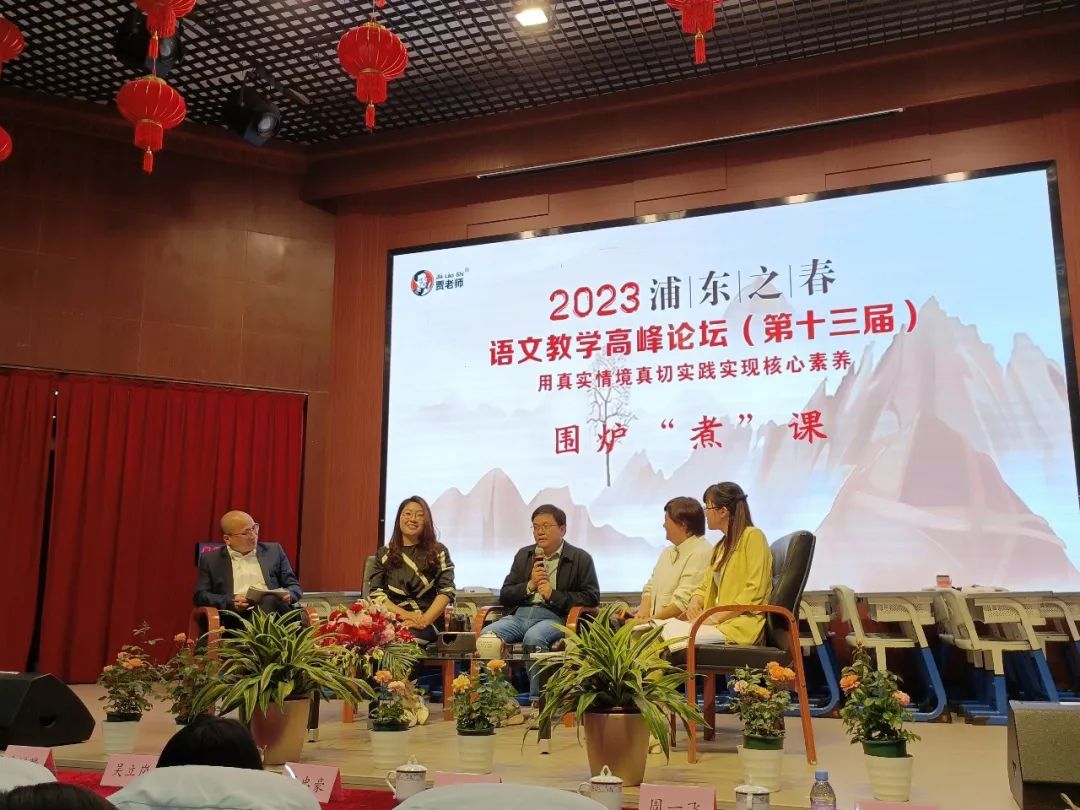The first “Jia Zhimin Cup” National Classroom Teaching Literacy Competition for Young Primary School Chinese Teachers took place in Shanghai’s Pudong New Area on May 12th. Our esteemed teacher, Ms. Rachel Dong, from WUIS (Wuxi United International School), emerged as the recipient of the special prize. As the sole representative among the young teachers in this competition, she had the privilege of participating in the 13th “Pudong Spring” – Chinese Teaching Summit Forum. During the event, she collaborated with renowned primary school Chinese teachers, including Xue Fagen, Zhu Yu and Yang Xiubao, to deliver lessons. Furthermore, she engaged in insightful dialogues with these esteemed educators in an interactive and collaborative setting, akin to a “cooking class around the stove” in order to exchange and share innovative teaching design ideas.



The National Primary School Chinese Young Teachers Classroom Teaching Literacy Competition took place during March 2023. It attracted over 200 exceptional young teachers from across the country to participate in the preliminary round. Following rigorous evaluation by the judges, 42 contestants advanced to the semifinals, where they engaged in intense competition. Ultimately, 16 contestants emerged victorious and advanced to the finals. Among them, Ms. Rachel Dong, our esteemed teacher, demonstrated remarkable prowess throughout the various stages of selection and emerged as the winner in the final round.




Ms. Rachel Dong played a pivotal role in compiling the textbook “Finger”, the second volume for Grade 5, and the lesson received high acclaim from the judges and experts during the meeting. Taking into account the unique characteristics of the text and considering the students’ learning experiences and interests, Rachel skillfully crafted a classroom teaching plan with the central focus on adapting the fable “The Quarrel of Fingers.” This approach truly exemplifies the “student-oriented” classroom concept. With the adaptation task at hand, Rachel guided the students in understanding the requirements and initiated the process section by section, providing them with exemplary models. By employing guided methods, individual learning tasks were assigned and collaborative group work was encouraged to foster cooperative adaptation. Sufficient time was allocated for collaborative learning, allowing each student to tap into their creative potential while maximizing the efficiency of teamwork. Throughout the process, students engaged in personalized and creative expression, experiencing the humor embedded within the language. Gradually, they successfully accomplished the significant task of “adaptation.” The Chinese classroom environment brimmed with activity and enthusiasm as students actively participated, earning accolades from their teachers.



Ms. Rachel Dong won the grand prize in this National Primary School Chinese Young Teachers’ Classroom Teaching Literacy Competition, thanks to the dedicated research in education and teaching and strong teaching and research atmosphere of the WUIS. WUIS has been pursuing the “everything for the children”, “student-based” classroom education philosophy. All teaching activities are designed in accordance with the rules of children’s cognitive development. With children’s “learning” as the starting point of teachers “teaching” complies with the “freedom and exploration” of children’s nature. WUIS adheres to the teacher professional development principle of “leading by famous teachers, mutual assistance in groups and individual development”, and regularly carries out special teaching research to help young teachers improve their teaching quality. Subject group teaching research is carried out according to the theme, close to the educational practice and focusing on the common difficulties in teaching. Each school year, mature teachers’ demonstration classes as well as young teachers’ competition classes are held, and all these activities set up a display platform for every teacher.



Ms. Rachel Dong’s reading and teaching class exemplifies the Xiehe Chinese classroom model of “student-oriented, classroom-based, and constructing ecological Chinese.” The acquisition of Chinese curriculum knowledge profoundly influences learners’ spiritual outlook, inner world and overall lives. Therefore, Chinese curriculum instruction should not solely focus on imparting knowledge, but rather commence from the genuine needs of the children. It should be designed to stimulate learning through real-life task situations. Xiehe Chinese course embodies three key characteristics. Firstly, it fosters creative language accumulation and application, enabling students to not only accumulate vocabulary and grammar but also apply them in practical contexts. Secondly, it facilitates the enhancement of thinking quality and abilities among students. Through engaging classroom activities, students develop critical thinking, problem-solving skills, and higher-order cognitive abilities. Lastly, the course integrates various learning forms to optimize efficiency.












 ICP备案号:沪ICP备13041604号-4
ICP备案号:沪ICP备13041604号-4  沪公网安备31011202002143号
沪公网安备31011202002143号